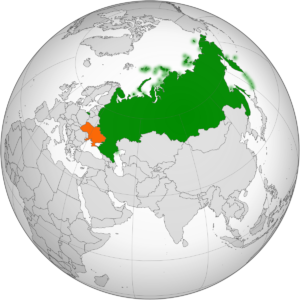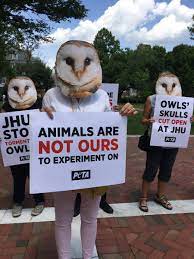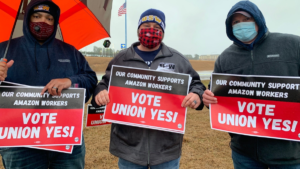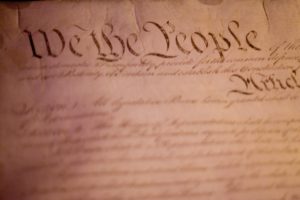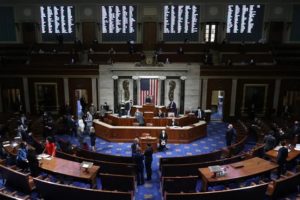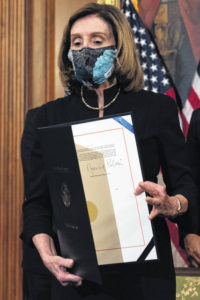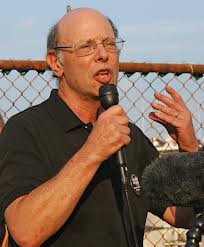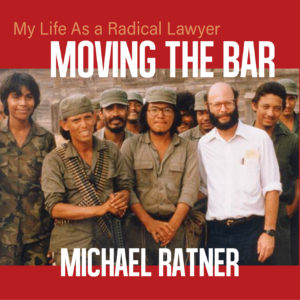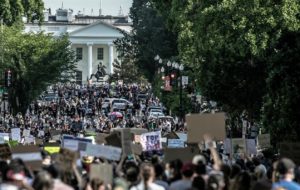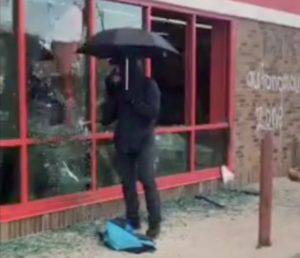Law and Disorder March 7, 2022
Podcast: Play in new window | Download
Russian Invasion of Ukraine Analysis
We turn to the on-going war between Russia and Ukraine. Let me introduce this topic by sharing, briefly, a few of my own thoughts on the matter. I believe the Russian invasion and its on-going deadly and destructive military assault in Ukraine is, of course, just plain wrong. I believe it mirrors, albeit to a much lesser extent, America’s deadly and destructive military assaults on Iraq and Afghanistan, to say nothing of Vietnam, Central America and too many other places to recount here. I believe Russia should end its war before its impact spreads far beyond the current conflict; before it provides an even greater opportunity than it already has to the capitalist war profiteers in America, and further emboldens the imperial designs of America, thereby radically changing the future in ways too dire to contemplate.
I believe the severe sanctions imposed on Russia will have little impact on Putin and the Russian oligarchs but will have a devastating impact on the working-class people of Russia, and of the entire world. I believe that the United States bears at least as much blame for the war as does Russia, and probably more. That may, at first blush, seem an odd thing to believe. But if you stay tuned, today’s guest on the war will explain why he and I believe this to be true. Lastly, I am personally saddened, beyond adequate description, over the fact of this new war. It, like America’s illegal and devastating wars in other countries, tells me that since the days of the cave man wielding his club, while the weapons used by warring sides to resolve their differences have advanced and become far more deadly and sophisticated, we humans have not, ourselves, found the way we resolve our disputes beyond that of the cave man with his hand-wielding club.
Guest – Richard Becker is the Western Region Coordinator of the ANSWER Coalition; that is Act Now to Stop War and End Racism. Richard Becker is a regular contributor to The Liberation newspaper, a publication of the Party for Socialism and Liberation, of which he is a member. And Mr. Becker is the author of Palestine, Israel and the US Empire, as well as of the book, The Myth of Democracy and the Rule of the Banks.
—-
A New Wave Of Book Banning
Book banning is the most widespread form of censorship in the United States. It’s when government officials, private individuals, or organizations remove books from libraries, school reading lists, or bookstores because they object to the content or themes contained therein. Children’s books are the main targets.
Often, complaints are that the book contains is sexually explicit, contains graphic violence, has offensive language, or shows disrespect for parents and family. Censors claim they’re afraid the contents are dangerous for kids, or that they’ll cause young people to raise questions, and incite critical inquiry among children that parents, political groups, or religious organizations deem inappropriate or aren’t ready to address.
Before the 1970s book bans typically focused on obscenity. Lady Chatterley’s Lover by D. H. Lawrence and Ulysses by James Joyce were often banned. From the late 1970s on, attacks focused on ideologies. To Kill A Mockingbird, The Color Purple, The Catcher in the Rye, and Harry Potter are among the 50 of the top banned books in this country.
A new wave of book banning in public and school libraries is sweeping the nation in 2022. It’s been under way since debates have percolated over critical race theory and what students should learn in the classroom. Several states are cutting funding for books written by authors in specific communities.
Guest – Christopher Finan, executive director of the National Coalition Against Censorship. He previously served as president of the American Booksellers Foundation for Free Expression, the bookseller’s voice in the fight against censorship. Before that, he was executive director of Media Coalition, a trade association that defends the First Amendment rights of producers and distributors of media. Christopher is the author of From the Palmer Raids to the Patriot Act: A History of the Fight for Free Speech in America by Beacon Press, which won the 2008 Eli Oboler Award of the American Library Association. His forthcoming book is How Free Speech Saved Democracy.
———————————
Law and Disorder November 8, 2021
Podcast: Play in new window | Download
Highlighting PETA Cases And Inherent Animal Protections
Each year, December 10 marks International Animal Rights Day to draw attention to the prevalent use and abuse of non-human animals. That’s the same day that Human Rights Day is observed, marking the day the United Nations General Assembly adopted, in 1948, the Universal Declaration of Human Rights.
Non-human animals are sentient. That means they have a capacity to experience feelings, and to be responsive to or conscious of sense impressions. Sentient beings experience emotions such as happiness, joy, and gratitude, as well as pain, suffering, and grief. Animal rights or animal welfare activists urge society to stop thinking of animals as human property and as companions rather than pets. They urge abstention from all animal use, including meat, leather, milk, wool and silk, while also calling for an end to experimentation on animals. Other efforts include seeking an end to using animals for laboratory experimentation and for sporting events and entertainment.
Scientists at People for the Ethical Treatment of Animals, or PETA, have written an authoritative report from dozens of studies, some funded by the National Institutes of Health, that show sentience across the animal kingdom. It compiles evidence from dozens of studies—some funded by the federal National Institutes of Health—that show sentience across the animal kingdom. The report concludes that because other animals experience emotions as humans do, it is unethical to subject them to the trauma and emotional distress of experimentation.
Guest – Asher Smith is Director of Litigation at the PETA Foundation. He has helped secure the rescue of 25 big cats from roadside zoos featured in the Netflix series Tiger King. More recently he has focused on freeing 30 barn owls from a laboratory at Johns Hopkins University.
Guest – Attorney Tamara Bedic, chairperson of the National Lawyers Guild Animal Rights Project. She is a graduate of the University of Virginia School of Law and a masters degree from Columbia University-NY University. Tamara practices employment law with a focus on women and harassment in the workplace.
—-
More PETA Cases, Speciesism and Long Range Animal Protection
With more than 9 million members and supporters worldwide, People for the Ethical Treatment of Animals (PETA) is the largest animal rights organization in the world. It opposes speciesism, the human-held belief that all other animal species are inferior. PETA’s work encompasses four areas in which animals have been suffering the most intensely and over the longest periods of time. They are in research laboratories, the food industry, the clothing trade, and the entertainment business. PETA conducts public education, investigative news gathering and reporting, research, animal rescue, legislation, and protest campaigns.
Guest – Jared Goodman, PETA Foundation Vice President and Deputy General Counsel for Animal Law. He describes what speciesism is and how it has informed PETA’s work since its founding in 1980.
————————————————–
Law and Disorder March 15, 2021
Podcast: Play in new window | Download
Amazon Workers Unionize At Fulfillment Center In Bessemer, Alabama
There’s an historic battle for union recognition going on now at the Amazon fulfillment center in Bessemer, Alabama where mostly black workers package and ship orders to customers across the South. The votes of 5800 Amazon workers are being counted. On March 29th we will know the outcome on whether the first ever labor union representing Amazon employees with the Retail, Wholesale and Department Store Union will prevail against a vicious trillion dollar company whose profits have almost doubled since the onset of the pandemic. Amazon owner Jeff Bezos is worth $184 billion and is one of the richest men in America.
Amazon employs 1 million people, second only to Walmart which employees over 2 million people. Because most of the workers at the Alabama Fulfillment Center are African-American, the unionization battle is also a civil rights fight. They’ve gotten broad solidarity from many such as celebrity Danny Glover, politicians Jamaal Bowman and Bernie Sanders, and even the players unions in major league baseball and the NFL.
Will a victory in Bessemer open the floodgates? Will other large company work forces be unionized? Will the South be unionized? Will this spread to the north? Historically the south has been a dragging progress in America going all the way back to the time of slavery. Will this start to change?
Guest – Michael Goldfield, former civil rights and labor activist and agitator, Professor Emeritus, and currently a research fellow at Wayne State University in Detroit. He is the author of numerous books and articles on race, labor, and the global economy, including The Decline of Organized Labor in the United States, The Color of Politics: Race and the Main- springs of American Politics, and most recently, The Southern Key: Class, Race, and Radicalism in the 1930s and 1940s.
—-
Florida Based Organization Tries To Unite Political Divisions
When asked about the state of politician’s discourse in the US, the public renders a harsh judgment. Many Americans say that their own personal conversations about political issues have become stressful incidents that they’d rather avoid, according to a Pew research poll.
A majority say the tone and nature of debate between politicians has become less fact-based, less respectful, less substantive, and more negative in the past few years. And everyday conversations about politics and other sensitive issues like abortion and free speech are often tense. Half say talking about politics with people they disagree with politically is “stressful and frustrating.”
When speaking with people they don’t know well, more Americans say they would be very comfortable talking about the weather and sports – and even religion – than politics. And it is people who are most comfortable with interpersonal conflict, including arguing with other people, who also are most likely to talk about politics frequently and to be politically engaged.
Why does this matter?
The founding fathers knew that with any political issue came disagreement so they created a system that runs on disagreement. The checks and balances between the branches of power within the Republic depend on division to protect freedom and liberty. The power of one branch is checked when another branch disagrees and seeks to enact its own ideas. So political disagreement, even bitter disagreement, isn’t new. What’s new is the idea that someone who disagrees with you is your enemy. One organization is trying to change this. The Florida-based Village Square has the mission of reviving civic connections across divisions in American communities.
Guest – Liz Joyner, Village Square founder and CEO. Liz has a Masters Degree in Social Work and created the Village Square after her experience working in politics convinced her that the way we work out disagreements in today’s public square is fundamentally flawed.
—————————————————
Law and Disorder February 15, 2021
Podcast: Play in new window | Download
Attorney Jim Lafferty On Trump’s Impeachment Case
According to a study by The Chicago Project published last week in the Atlantic magazine the Capitol rioters weren’t like other extremist. Most of them were middle-aged and middle class. Forty percent of them were business owners or had white-collar jobs as CEOs, shop owners, doctors, even lawyers. Only 9% of them belong to paramilitary groups like the 3 Percenters, The Boogaloo Boys or The Proud Boys. Most of them did not come from deep red states.
The article stated that “the overwhelming reason the rioters cited again and again in court documents was that they were following Trump’s orders to keep Congress from certifying Joe Biden how’s the winner of the presidential election. They believed Trumps big lie that the election was stolen.
When Trump spoke at the rally before they marched on the capital he advised them to “show strength“., that “we fight. We fight like hell. And if we don’t fight like hell, you’re not going to have a country anymore… So let’s walk now to the capital.“ For this he has been charged with inciting insurrection and is being tried by the United States Senate. If found guilty he would not be able to run again in 2024.
Senate minority leader Mitch McConnell said that the crowd was “provoked by the president“ and that “the mob was fed lies.“
Liz Cheney, The house Republican conference chair, broke with her party and summed up the case against Trump: “The President of the United States summoned this mob, assembled the mob, and lit the flame of this attack. Everything that followed was his doing. None of this would have happened without the president. The president could have forcefully intervened to stop the violence. He did not. There has never been a betrayal of a President of the United States of his office and his oath to the Constitution.“.
In his defense, Republican say that his speech was protected by the First Amendment. Secondly, they argue that since he has left office he can’t be tried.
Trump’s lawyers argued before the Senate on the first day of the trial that a guilty verdict against Trump will tear our country apart. Others have argued that the country is already torn apart and that there is an American fascist movement That has contempt for democracy and the rule of law. They see it as congealing, getting stronger, and it looking to Trump as its leader.
Guest – Jim Lafferty, the Executive Director Emeritus of the National Lawyers Guiid in Los Angeles. He is a member of the governing board of the American Civil Liberties Union of Southern California and an elected fellow of the Institute for the Humanities at the University of Southern California. Mr. Lafferty is a founding member, and steering committee member, of the national Julian Assange Defense Committee and the recent chair of the Office of the Americas. Jim Lafferty is the host of The Lawyers Guild radio show on our sister station in Los Angeles, KPFK. For the past 60 years Mr. Lafferty has been a recognized national leader in various movements against the US wars of intervention such as in Vietnam, Central America, and the Middle East.
—-
Chris Hedges Interviews Michael Smith On Michael Ratner’s Autobiography
We hear the interview Chris Hedges conducted with Michael Smith on his RT show On Contact.
On the show this week, Chris Hedges talks to Michael Smith about civil rights attorney Michael Ratner’s recently published memoir, “Moving the Bar – My Life as A Radical Lawyer”. Smith was a close friend and collaborator of Ratner’s for over three decades. Michael Ratner was one of the most important civil rights attorneys in our era. He spent his life fighting on behalf of those who state and empire sought to crush, from the leaders of the prison uprising at Attica to Muslim prisoners held in Guantanamo, to Julian Assange.
——————–
——————–
Law and Disorder June 8, 2020
Podcast: Play in new window | Download
President Trump Invokes 1807 Insurrection Act
Last week Donald Trump announced his readiness to deploy the military to enforce order inside the United States. From the Rose Garden he vowed that if city and state leaders did not “take the actions that are necessary to defend the life and property of their residents” he would invoke the 1807 Insurrection act. The Act was renamed after Hurricane Katrina, but otherwise remains the same. It allows a president to deploy the military to suppress civil disorder.
In response, defense officials have expressed discomfort at the prospect of calling in active duty troops to police protected First Amendment activity. Many have emphasized the importance of having local law enforcement take charge. Some National Guard troops are also reportedly wary of this move, even as more are mobilized domestically than at any other time in history.
Army Major General Thomas Carden of the Georgia National Guard told reporters: “I believe that we in America should not get used to or accept uniformed service members of any variety having to be put in a position where they are having to secure people inside the United States of America.” He also said, “while we are glad to do it and honored to do it, this is a sign of the times that we need to do better as a country.”
During that Monday call with state governors, Trump intensified rhetoric about using military forces to “dominate” protesters. He wished there was an “occupying force” in cities across America and urged a tougher response to protests. Later that day, law enforcement officers fired tear gas and rubber bullets at a peaceful crowd outside the White House.
Guest – Mara Verheyden-Hilliard with the Partnership for Civil Justice Fund. Mara is one of the nation’s pre-eminent authorities on the policing of First Amendment protected activities including the right to peaceably assemble and associate.
—-
President Trump Withdraws From The Treaty On Open Skies
The chance for nuclear war which would destroy human life on Earth has never been higher. Just last week President Donald Trump withdrew America from The Treaty On Open Skies. This treaty is an agreement between 34 nations that allows each country to fly over each other’s territories. The treaty is designed to provide transparency and mutual observation of military developments. He also withdrew from the Intermediary Intermediary Ballistic Missile treaty with Russia. As a consequence the Bulletin of Atomic Scientists has pushed the hands of its doomsday clock on its magazine forward to almost midnight
Shortly after taking office Trump pulled out of the Iran nuclear deal. Trump enjoys the financial and political backing of big business, the banks, the hedge funds, and the military industrial complex. These money interests profit greatly from the nuclear rearmament which is now going on.
First under Obama and then Trump $1 trillion is planned to be spent over the next 30 years for a new generation of nuclear weapons, including low yield ones, which are likely to be used.
Whistleblowing truth teller Daniel Ellsberg has recently written the grimly important book The Doomsday Machine. He believes that so far, avoidance of a nuclear war has been miraculous and that the danger is as present today as it was during the Cold War. He thinks seeking profit in spite of the risk of nuclear winter is “institutional madness.“
Guest – Paul Jay is the editor of the blog the theanalysis.news. We will discuss with him the kind of movement that is needed to reverse the nuclear arms race as well as to bring about a democratic organization of the economy.
—————————————-
—————————————-
